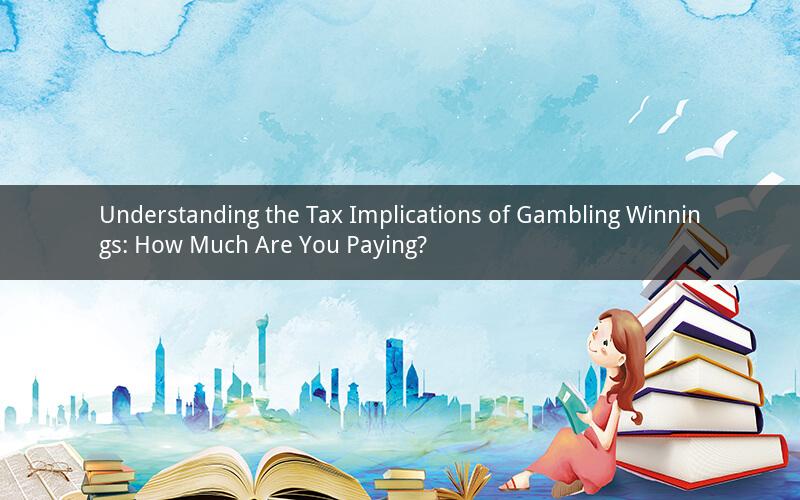
Gambling has been a popular pastime for centuries, offering individuals the thrill of winning big. However, it's crucial to understand the tax implications associated with gambling winnings. In this article, we will delve into how much tax you may be paying on your gambling winnings and provide valuable insights to help you navigate this aspect of the game.
1. How are gambling winnings taxed?
Gambling winnings are considered taxable income in most countries, including the United States. The tax rate on these winnings depends on various factors, such as the type of gambling activity, the amount won, and your overall income.
2. What types of gambling winnings are taxable?
All forms of gambling winnings are taxable, including:
- Casino games
- Horse racing
- Sports betting
- Lottery winnings
- Bingo
- Poker tournaments
It's important to note that any prize or money won from gambling activities is subject to taxation, regardless of whether you win a small amount or a large sum.
3. How much tax do you pay on gambling winnings?
The tax rate on gambling winnings varies depending on the country and the specific regulations in place. In the United States, for instance, gambling winnings are taxed at the federal level, and some states may also impose their own taxes.
Here's a breakdown of the tax rate on gambling winnings in the United States:
- Federal tax rate: 24% of the gambling winnings
- State tax rate: Varies by state, with some states imposing no tax on gambling winnings
- Local tax rate: Varies by city or county, with some areas imposing additional taxes
To calculate the total tax on your gambling winnings, you'll need to add up the federal, state, and local tax rates.
4. How do you report gambling winnings on your taxes?
Reporting gambling winnings on your taxes is a straightforward process. You'll need to provide the following information:
- The amount of your gambling winnings
- The date of the winnings
- The type of gambling activity
- The name and address of the gambling establishment or entity that paid you the winnings
In the United States, you'll report your gambling winnings on Form W-2G, which is provided by the gambling establishment. You'll then include this information on your tax return, such as Form 1040.
5. Are there any deductions for gambling losses?
While gambling winnings are taxable, you may be able to deduct your gambling losses. However, these deductions are subject to certain limitations.
In the United States, you can deduct gambling losses up to the amount of your gambling winnings. To claim these deductions, you'll need to maintain detailed records of your gambling activities, including the dates, types of games played, and the amounts won or lost.
It's important to note that these deductions are only available if you itemize your deductions on your tax return. Additionally, you must be able to substantiate your losses with receipts, betting slips, or other documentation.
Frequently Asked Questions:
1. Q: Can I deduct my gambling losses if I don't win anything?
A: No, you can only deduct your gambling losses up to the amount of your gambling winnings.
2. Q: Do I need to report gambling winnings if I win a small amount, such as $20?
A: Yes, you must report all gambling winnings, regardless of the amount. However, if the winnings are below a certain threshold (usually $600), the gambling establishment is not required to issue a Form W-2G.
3. Q: Can I deduct my gambling losses if I'm not a professional gambler?
A: Yes, you can deduct your gambling losses if you're not a professional gambler. However, you must maintain detailed records of your gambling activities and itemize your deductions on your tax return.
4. Q: Are there any tax credits available for gambling winnings?
A: No, there are no tax credits available specifically for gambling winnings. However, you may be eligible for other tax credits or deductions that can help offset the tax burden on your winnings.
5. Q: Can I avoid paying taxes on my gambling winnings if I donate them to charity?
A: No, donating your gambling winnings to charity will not exempt you from paying taxes on them. The tax on gambling winnings is based on the amount you win, not on how you choose to spend the money.
In conclusion, understanding the tax implications of gambling winnings is essential for anyone who engages in this activity. By familiarizing yourself with the tax rates, reporting requirements, and potential deductions, you can ensure that you're managing your tax obligations effectively. Remember to consult with a tax professional or financial advisor for personalized advice and guidance.